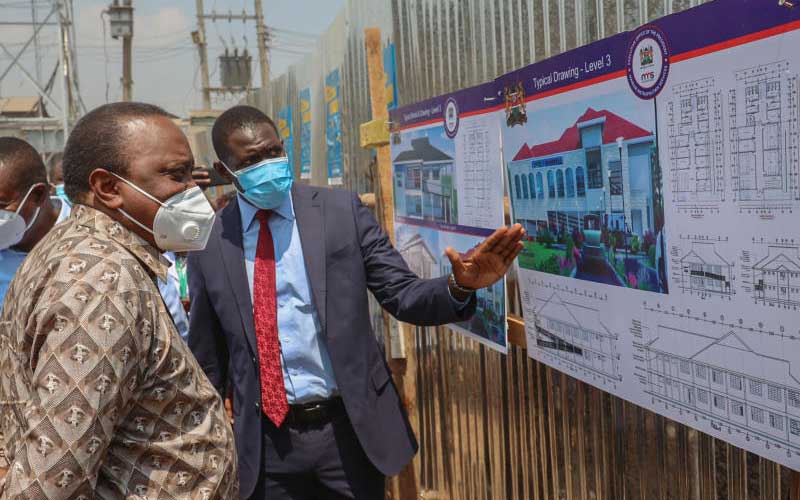×
The Standard e-Paper
Fearless, Trusted News

President Uhuru Kenyatta Monday witnessed the ground breaking for the construction of 16-bed capacity hospitals at Muthua in Uthiru and Kianda in Kibra as well as a 24-bed facility at Maendeleo Village in Mukuru kwa Reuben. [PSCU]
Two seemingly unrelated events happened in Nairobi within a span of twenty-four hours that could point to a new dawn for the residents of Nairobi and the country at large.